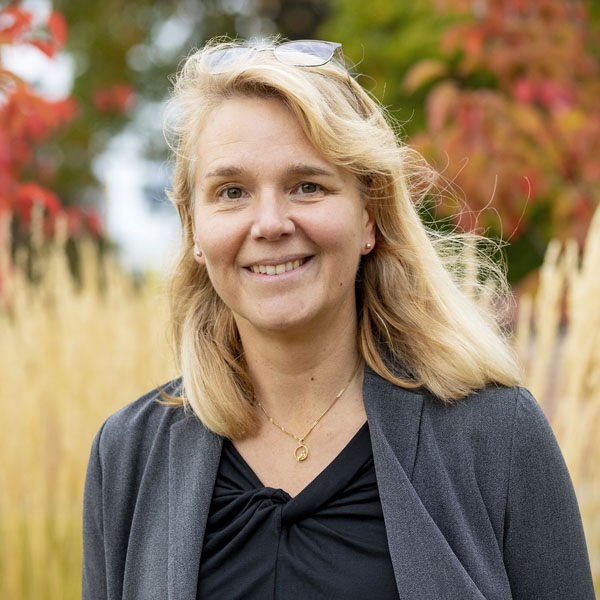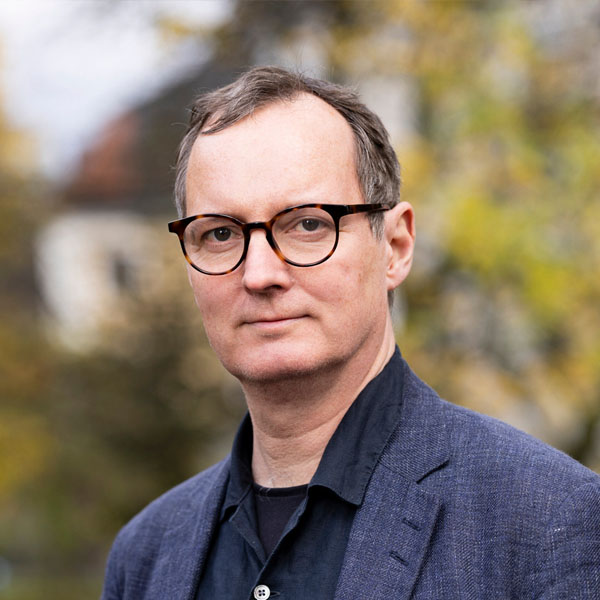Learning more about students’ backgrounds

In general, there is no under-representation of people born abroad at Uppsala University. However, there are large differences across the University.", says Mikael Börjesson. Photo: Mikael Wallerstedt
How can we know if efforts to widen participation have been successful? The “Oavsett bakgrund” (“Regardless of background”) project surveys the student population to set new targets for the future. So far, it can be seen that gender and class play a role in students’ choice of programme.
Through events such as Scifest or Uptown Tech, Uppsala University has tried to attract young people into higher education. Cecilia Edin, Head of the Student Affairs and Academic Registry Division, highlights the two events as examples of how the University has worked to widen participation.
“It’s a question of influencing social structures, you could say. We want students who have a background or an upbringing where it is not obvious to continue into further education to be able to view higher education as something for them,” explains Edin, project manager for “Regardless of background”.
Evaluated by Swedish Higher Education Authority
Between 2020 and 2022, the Swedish Higher Education Authority carried out an evaluation of the higher education institutions’ work on widening participation. The evaluation resulted in a number of recommendations, which for Uppsala University mainly concerned the need to systematise widening participation efforts.
“Uppsala University has done a lot to widen participation, but it is difficult to know whether these efforts have had an effect. The Higher Education Authority wants us to conduct a student survey to find out more about composition of the student population and to continuously monitor trends. This survey can provide a basis for analysing the most important areas to influence, and based on this we can set concrete, monitorable targets for our efforts.”
The project, called “Regardless of background”, in collaboration with the Centre for Higher Education as a Research Object (HERO), has now carried out an initial survey of the student population based on existing data.

Cecilia Edin, project manager for “Regardless of background”. Photo: Mikael Wallerstedt
Gender and class influence students’ choice of programme
Mikael Börjesson, Director of HERO, explains that an initial survey of students’ backgrounds has been carried out. Among other things, it showed that there are clear gender differences between men and women when it comes to the choice of programme. Men opt for programmes that include engineering, sciences and computing, while women go for programmes related to care, health, teaching and languages. It is also evident that students’ class background influences what they choose to study.
“Long professional programmes such as the medical programme, the law programme and many Master’s programmes in engineering such as engineering physics attract students from the upper middle class. Students from working-class and lower-middle-class backgrounds are instead looking for shorter professional programmes such as the Bachelor’s engineering programmes, preschool teaching and social work,” notes Börjesson, Professor of Sociology of Education and Director of HERO.
They survey also looked at the representation of students of foreign origin, which in this case meant they were born abroad themselves or their parents were born abroad.
“In general, there is no under-representation of people born abroad at Uppsala University; on the contrary, that group is slightly over-represented. However, there are large differences across the University, with a strong over-representation in some programmes, such as nursing and pharmacy, and a significant underrepresentation in others, such as several social sciences programmes and some engineering programmes.

Mikael Börjesson, Professor of Sociology of Education and Director of HERO. Photo: Mikael Wallerstedt
Freestanding courses have become exclusive
The survey also shows a difference in terms of which students choose to take courses.
“As freestanding courses have less and less places available, they have become more and more socially exclusive. Those who choose those courses are strongly linked to the upper middle class.”
Based on this initial survey, what action is most important to take at the University?
“Now that we have it in black and white that these programmes have these students, we can set different targets. It's also a question of how we package different programmes; for example, by including people and society in certain technical programmes, you can attract more women, while adding more technology can attract more men into healthcare,” notes Börjesson, before continuing:
“We must also remember that these are rigid structures. We should not be overconfident that we can change much, but we can be aware that changes do occur and that it is important to have a long-term, determined and resilient approach. To do that, we need to be able to monitor trends over time to see the impact of our actions.”
Sandra Gunnarsson
Facts
“Regardless of background” is a project that launched in September 2022 and will run until October 2024. The overall objective of the project is to:
- propose and implement a model/procedure for widening participation at Uppsala University, based on analysis of the student population, defined targets and continuous monitoring of the effects.
- stimulate activities that contribute to broader adoption of widening participation and a deeper understanding of its benefits.
- submit a report to the Swedish Higher Education Authority on the measures Uppsala University has taken in response to the recommendations.
During the student survey process, disciplinary domain boards, faculty boards and various working groups across the University have been given figures on their particular student population. The survey examined gender and social background, Swedish/foreign background, region of upbringing and grades.
The project also provides support to disciplinary domains and faculties in terms of formulating targets.
